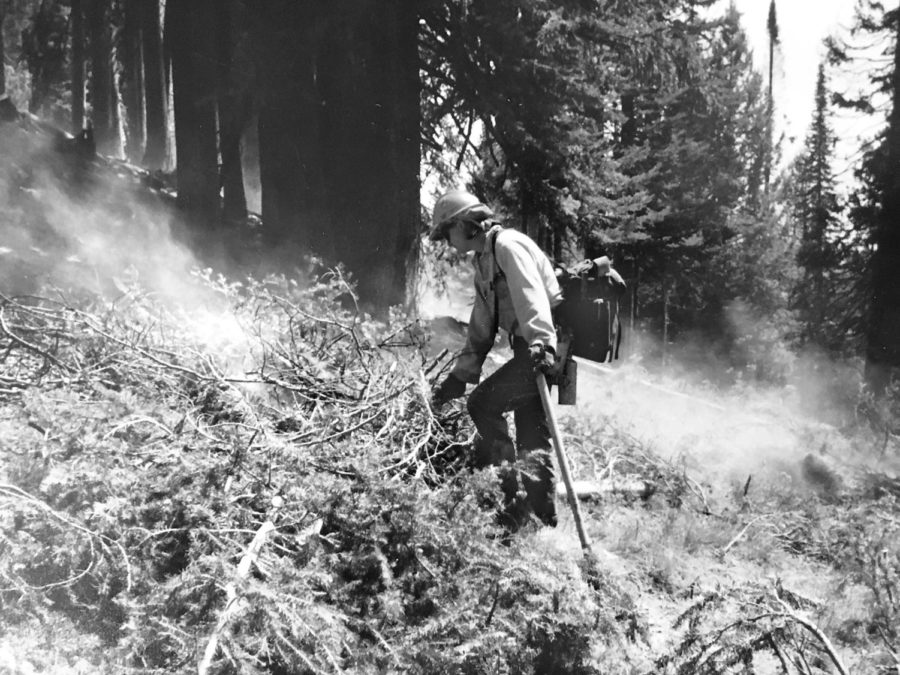Wildland firefighter turned LHS teacher
Photo courtesy of Julie O’Neill
Social studies teacher Julie O’Neill fought wildfires throughout the West before she became a teacher.
Skies orange from fire and searing heat filled social studies teacher Julie O’Neill’s summers during college. Before she became a teacher, O’Neill fought forest fires out of Greybull, Wyoming on a small fire crew of 21 people.
She began working on the Wyoming Interagency Hotshot Crew as a summer job while she was in college. A hotshot crew is a group of firefighters that gets deployed when there’s a large fire or a smaller blaze in their area.
“It was the best job you could get. I paid for college with that, I paid for my tuition and books,” she says.
O’Neill began working with the Forest Service in Wyoming two years before she became a firefighter.
“The first year I did a trail crew, which was awesome,” she says, “you get paid to camp and maintain trails.” The second year she spent as an information specialist, and joined a hotshot crew after this.
The method she and her crew used to fight fire was a preventative strategy to keep it from spreading. “We built fire lines and [we] cut all the trees towards the fire, and then dug down to mineral earth.”
Her crew would then hack away all of the brush and do a controlled burn. O’Neill explains, “Fire is heat, fuel and oxygen and you’re trying to take away the fuel.”
Fighting fires is one of the most physically demanding and risky jobs out there. Smoke inhalation and the danger of being overtaken by a raging fire are factors that O’Neill would face every time she would fight a fire.
During her time on the crew, she had a few close calls. “[Another crew] lost [the fire] in front of us, and they lost it behind us, and we had to bushwhack to get out of it” she recalls. Their job was to stop fires from growing, but if one got out of control they would pull out. “We always had a saying, ‘run away calmly,’” she says.
When fighting a big fire, the hotshot teams stay near the fire and camp there overnight. “You would just make your own [shelter] out of parachute cord and a tarp,” she says.
After her career as a firefighter ended she moved to Portland and pursued an education degree at Lewis and Clark College.
Tim Swinehart a social studies teacher who was mentored by O’Neill knows about her days working for the forest service and her time on a hotshot crew.
“I think she might have wanted to have a different type of impact on the world” he says about her becoming a teacher. He and O’Neill have worked on creating curriculums together and he says, “I think that her time as a firefighter influenced how she teaches and what she teaches about.”
Although firefighting was a demanding and dangerous job, she enjoyed it.
“I miss the freedom of it, at the time we were young and just traveled all over and saw beautiful country” she says, “I’ve been to places I’ll never see again.”
The recent forest fires reminded O’Neill of her days as a firefighter.
“I did not envy the [the firefighters] because it was so hot and steep” she says, “I empathized with them.”

